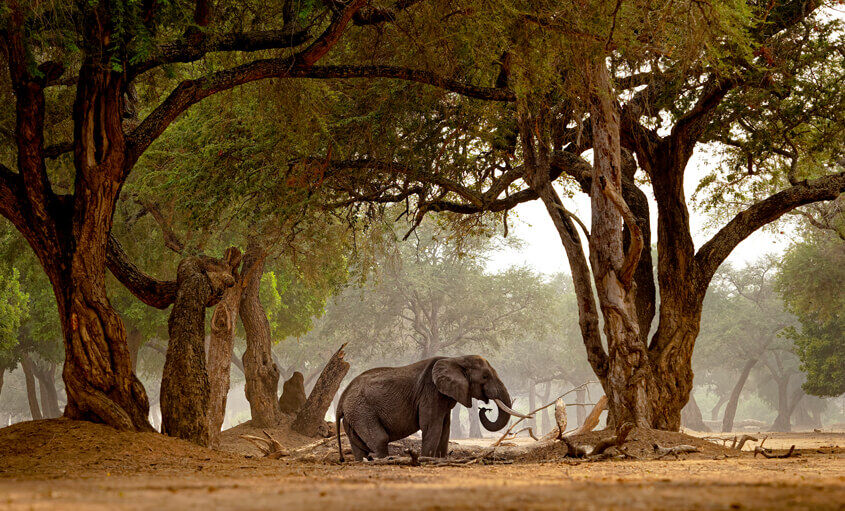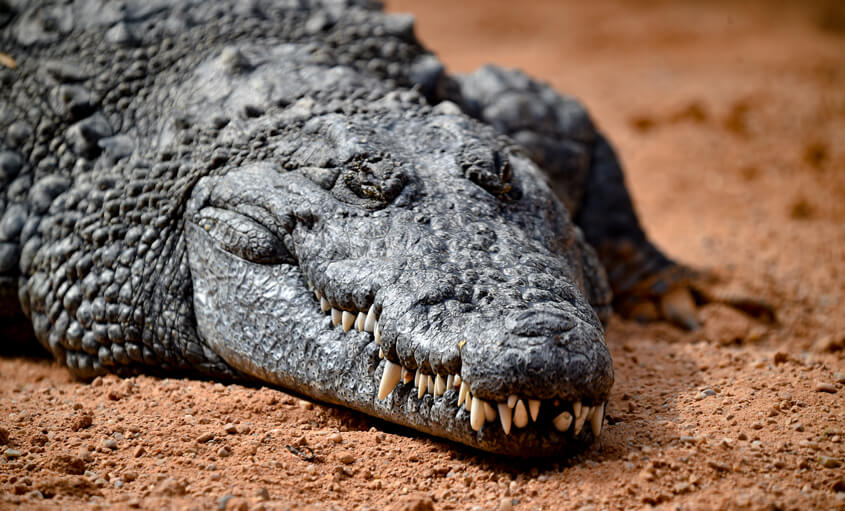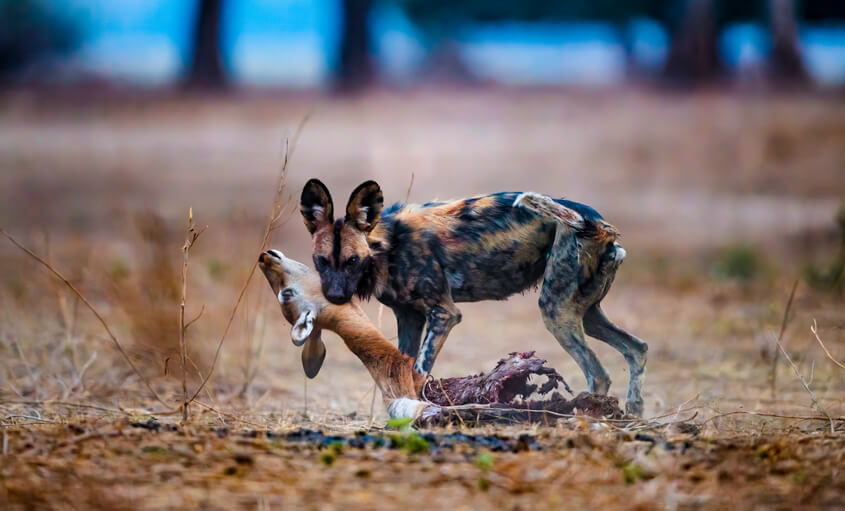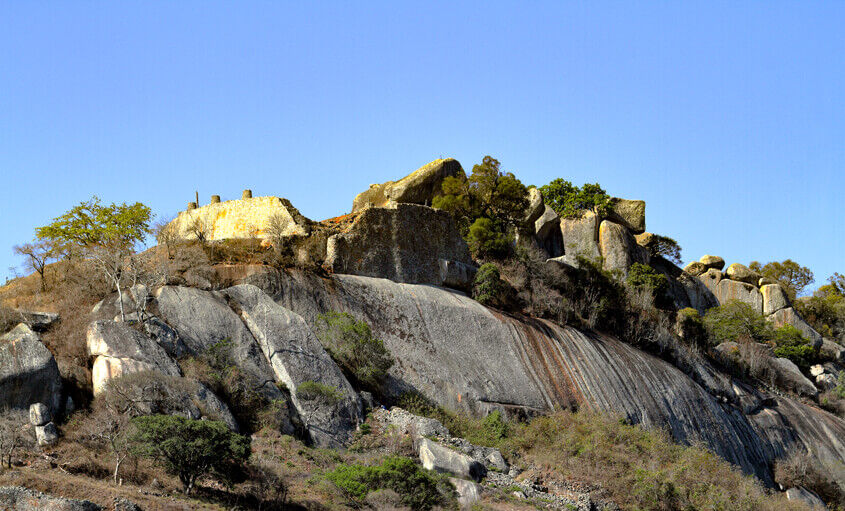Zimbabwe is known for its stunning landscapes, ranging from rolling hills and flat savannas to majestic mountains and sprawling lakes. The country is home to a total of 5 areas that are on UNESCO’s World Heritage List. In order to be on the list, the place must have a unique significance, which is considered the common heritage of mankind. Of all Zimbabwe’s natural wonders, Victoria Falls is the most famous. The world’s second largest waterfall is considered one of the world’s most spectacular with its width of 1.7 km and a drop of 128 meters at the highest point.
The country is also home to several national parks and game reserves, including Hwange National Park, Matobo National Park, and Mana Pools National Park. These parks offer visitors the chance to see some of the world’s most impressive wildlife up close, including elephants, lions, leopards, and rhinos.
Zimbabwe is a haven for wildlife enthusiasts, offering a unique opportunity to witness some of the world’s most endangered animals in their natural habitat. The country is home to a wide range of species, including elephants, lions, giraffes, zebras, and many more. Visitors can take guided safari tours through the country’s national parks and game reserves, offering an unforgettable experience and a chance to get up close to some of the world’s most incredible animals.
Also known to be a melting pot of cultures, traditions, and ethnicities, making it a fascinating place to visit for anyone interested in exploring different cultures. The country is home to several ethnic groups, each with its unique customs, languages, and practices. Visitors can explore the country’s rich cultural heritage by visiting ancient ruins, such as the Great Zimbabwe ruins, and by engaging with the local population through music, dance, and food. Zimbabweans are known for their warm hospitality, and visitors can expect to be welcomed with open arms.
Zimbabwe is a song that, once heard, is never forgotten. An atmosphere that meets the needs of every soul. A magic that enchants everyone who meets her. Her voice brings forth many melodies. Welcome to Zimbabwe – a world of wonders.
In conclusion, Zimbabwe is a must-visit destination for anyone looking to explore the natural beauty, abundant wildlife, and rich cultural heritage of Africa. With stunning landscapes, diverse wildlife, and a welcoming population, Zimbabwe is sure to offer visitors an unforgettable experience.
Whether you are flying solo, in a group, or on any family vacation, our fine selection of well-curated itineraries take you on a journey to discover the best wildlife places.
What is the official language of Zimbabwe?
The official language of Zimbabwe is English, although several indigenous languages are also spoken, including Shona and Ndebele.
What is the best time of year to visit Zimbabwe?
The best time to visit Zimbabwe is during the dry season, which runs from May to October. During this time, wildlife congregates around waterholes, making it easier to spot them on safari. The weather is also cooler and less humid, making it more comfortable for outdoor activities.
What are the top things to do in Zimbabwe?
The top things to do in Zimbabwe include visiting Victoria Falls, going on safari in Hwange National Park or Mana Pools National Park, exploring the ancient ruins of Great Zimbabwe, and experiencing the local culture through music, dance, and food.
What should I pack for a trip to Zimbabwe?
Visitors to Zimbabwe should pack lightweight clothing for the hot and humid climate, as well as comfortable shoes for walking and hiking. It is also recommended to bring insect repellent, sunscreen, and a hat to protect against the sun.
Do I need a visa to visit Zimbabwe?
Yes, visitors to Zimbabwe need a visa, which can be obtained on arrival at the airport or online before travel. The cost of the visa depends on your nationality and the length of your stay.
Is it safe to visit Zimbabwe?
Zimbabwe is generally a safe destination for tourists. However, visitors are advised to take precautions to avoid theft and pickpocketing, particularly in crowded areas. Visitors should also avoid political demonstrations and public gatherings.
What is the currency in Zimbabwe?
The official currency in Zimbabwe is the Zimbabwean dollar. However, US dollars are widely accepted, and it is recommended to bring cash in US dollars as it can be difficult to withdraw money from ATMs in Zimbabwe.
Do I need any vaccinations before traveling to Zimbabwe?
Yes, visitors to Zimbabwe are recommended to get vaccinated against certain diseases, including hepatitis A and B, typhoid, and yellow fever. It is also recommended to be up-to-date on routine vaccinations such as measles, mumps, and rubella (MMR) and tetanus.
Is malaria a concern in Zimbabwe?
Yes, malaria is present in Zimbabwe, particularly in rural areas and during the rainy season. Visitors are advised to take prophylactic medication and use insect repellent and mosquito nets to avoid contracting the disease.
Are there any other health concerns in Zimbabwe?
Visitors should be aware of the risk of heat exhaustion and dehydration, particularly during the hot and dry season. It is recommended to drink plenty of water, wear sunscreen, and avoid prolonged exposure to the sun. Visitors should also be aware of the risk of HIV/AIDS in Zimbabwe and take appropriate precautions to avoid transmission.





Whether you’re planning a safari, or have a question about traveling to Africa, our Travel Specialist would love to respond to your inquiries. Drop us a message.